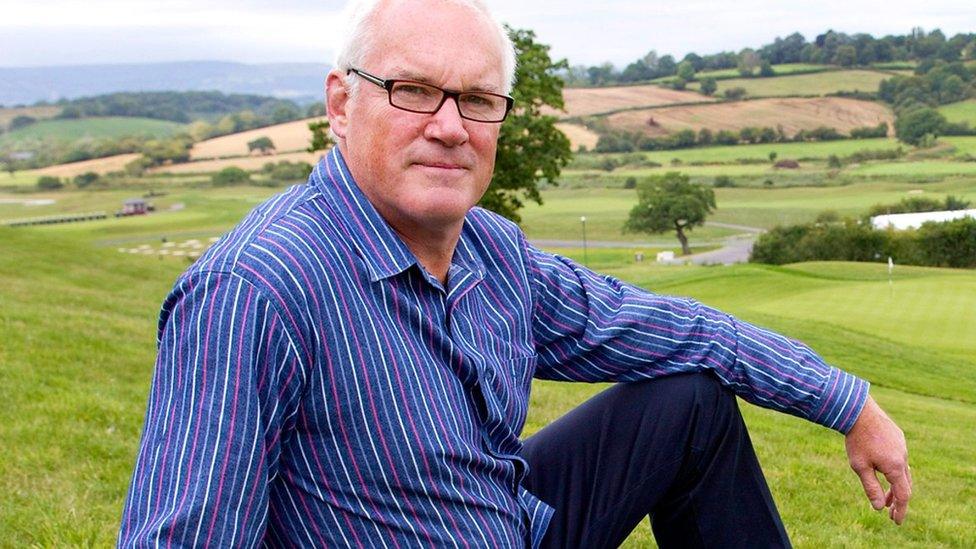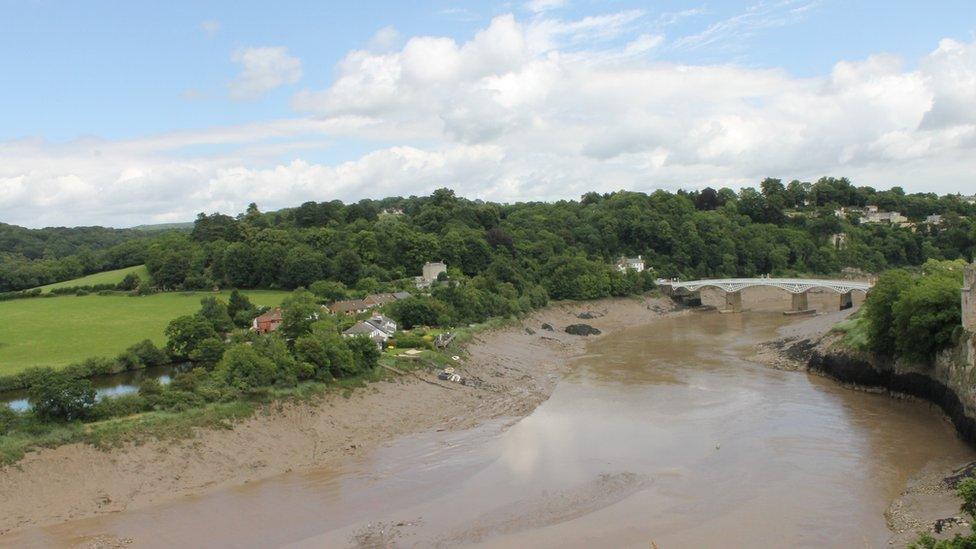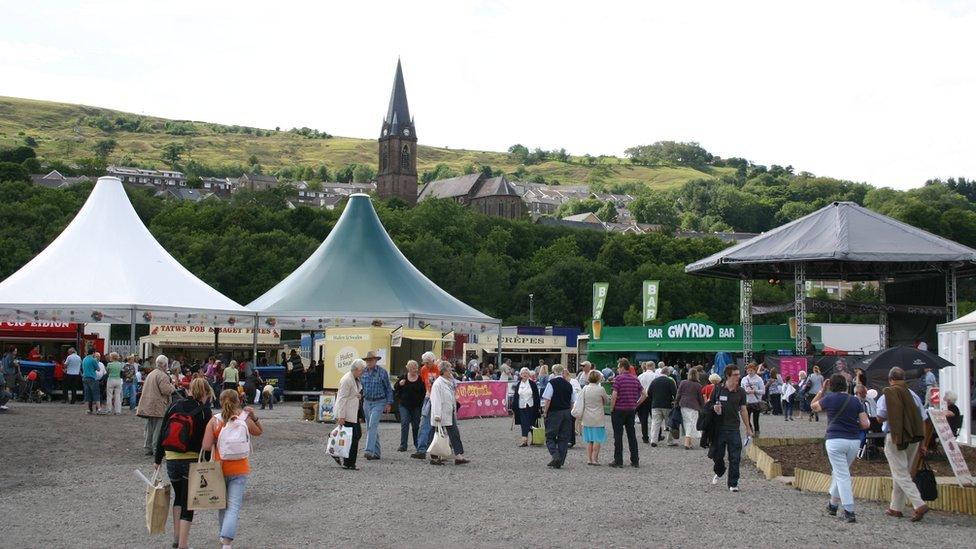Language no barrier at Eisteddfod
- Cyhoeddwyd

Language should be a beautiful caress and not an exclusion zone, according to broadcaster and former rugby international Eddie Butler as his home county of Monmouthshire welcomes the most quintessential of Welsh language events - the National Eisteddfod.
I was born to English parents into an English-speaking part of Wales - the old port town, now the new city of Casnewydd - and live in what remains of the old county of Monmouthshire.
"Monmouthshire?" sometimes comes at me from the faithful of Parc y Scarlets. "Not really Wales at all, is it?"
Well, it isn't and it is. You'd be hard pressed, it's true, to find many strident Welsh nationalists in Monmouthshire. Nationalism in border areas tends to be imposed by people who live elsewhere, people who see a frontier as a frown line, rather than an invisible welcome mat. But Monmouthshire certainly isn't England. It is simply what it is, where it is. In Wales.
It is pretty comfortable with that, but there's no doubt there was a time when as a citizen of this corner, I felt ill at ease - nothing more than that - when in more Welsh parts of the land. Language is a beautiful caress that can make strangers melt into friends, but it is also a verbal door that can be closed in the face of outsiders. There is no better way to impose an exclusion zone than through language.
Three things make me less uncomfortable nowadays. The first is Welsh-language broadcasting, particularly S4C. The channel has been through several chapters - some of them decidedly turbulent - but is still very much with us. And that means all of us. Subtitlers should be given a Nobel Prize.

Wales and England, separated in Monmouthshire by the River Wye
There is a bullying power to the English language, a superbug tongue resistant to gender of nouns. It can more than get by using just that one very word 'get'. Get off, get on, get away… English has made many languages worry for their survival, but S4C is a means to make the Welsh language look out rather than in. Co-existence with the invasive Saesneg is possible.
The second is devolution. The assembly government was born on a tight vote and battles for credibility every day of its young life, under-funded and under suspicion. But it is ours: to keep and make stronger. One of the good things about Monmouthshire is that we are close enough to the grass of England to see that it is not always greener. S4C and the WAG are nation-making institutions and building blocks of self-confidence.
For me, it helps that the nation under reconstruction - even redefinition after the referendum - is bilingual, but the national eisteddfod, my third comfort blanket, has its exclusively Welsh place in the equation. Just as the "Jocs florals" once played their part in the Renaixença of the Catalan language, so the eisteddfod is one of the lifelines of survival. The difference may be that it is not so much a plea or a cry of defiance nowadays, but a celebration.

The National Eisteddfod was held in Ebbw Vale in 2010
When the Eisteddfod last came to old Monmouthshire (that once included Blaenau Gwent) it was a joy. That festival in Welsh on the site of the old Ebbw Vale steel works was pure theatre.
And now the Maes comes off the mountain, down past the home of Lady Llanover, and lands on the banks of the Usk in Abergavenny, one of the citadels of the contracted county of Monmouthshire. We may not be the Welshest of Welsh but this is a special corner of Wales and everybody, but everybody, is most welcome.